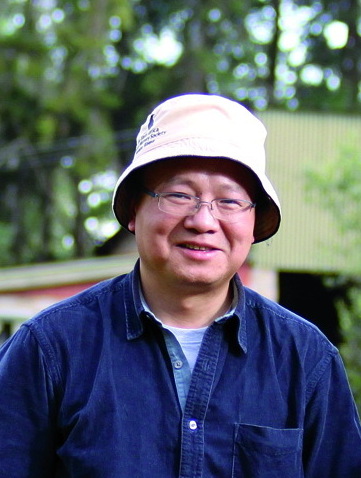|
 |
|
Professor Wang Qingfeng (PHOTO BY LIU JIAN) |
Professor Wang Qingfeng, Assistant Director of the Wuhan Botanical Garden, the Chinese Academy of Sciences, now travels to Africa four or five times every year. As a project leader for biodiversity conservation studies focusing on East African flora, he spends at least four months every year conducting joint field research with his Kenyan counterparts. Recently, Wang spoke to ChinAfrica in Nairobi about his experiences doing field research in Africa.
How did your interest in Africa begin?
My first visit to Africa was in 1996, when I was a young lecturer at the College of Life Sciences at Wuhan University. That year, I was sent to the University of N'Djamena in Chad, where I worked for a year on a foreign aid initiative to help build a laboratory for conservation biology. In my spare time, I did field work with Chadian researchers and also traveled to southern areas to examine rice cultivation. What impressed me most was the local people's hospitality and friendliness. When I arrived in a village, several Chadian children would help me carry my bags and specimen folders. They asked me where I was going and what specimens I needed, and they then helped me collect those plants.
Why did you choose biodiversity conservation in Africa as one of your main research areas?
Scientific research should not be confined to a small place. In macro-biology and evolutionary biology research, it's important to travel to broaden scientists' horizons. The biodiversity of African flora, which is so different from Chinese flora, offers a unique study opportunity. While African countries need to prioritize biodiversity conservation, most of them lack the advanced technology, experts and research capacity that is required to do so. This makes it difficult to carry out independent research. This is where cooperation comes into play.
What is it like to work with African researchers?
From my experience, I find that most of them are easy-going, simple and honest. Under difficult conditions during the field research trips, they are able to endure hardship. I think they are also good team players and demonstrate teamwork spirit. In addition, African researchers know more about the nature, uses and value of their local plants. And very often, good ideas for our research project come to me while I was discussing things with them.
Has your impression of Africa changed over the years?
Seventeen years ago, before I went to Chad, I felt terrible and I thought Africa was full of primitive tribes. But when I arrived there, I found that this was not the case at all. The environment was safe and Chadian people were friendly. The level of economic development in Chad was not high, but Chadian people put a great deal of emphasis on education. Local people are very respectful to teachers and researchers, and the government invested quite a lot in education, including spending large sums on educational facilities.
Over the years, I've traveled to do field research in several African countries, including Chad, Kenya, Cameroon, South Africa and Nigeria. I have observed that, along with developing their economies, African countries have attached equal importance to education and research. The number of researchers has been increasing, their quality has also improved, and more and more of them have studied abroad.
Does your family support your field research trips to Africa?
Yes, they do support me. Although I've been doing field research work for many years, every time I go abroad for the field trips, my family still worries about me. Whenever I arrive to a place, I will send short messages or call them to reassure them that I'm safe. In addition, prior to our arrival, our Kenyan research partners will examine the routes and the places we will visit, so as to ensure the research team's safety. |